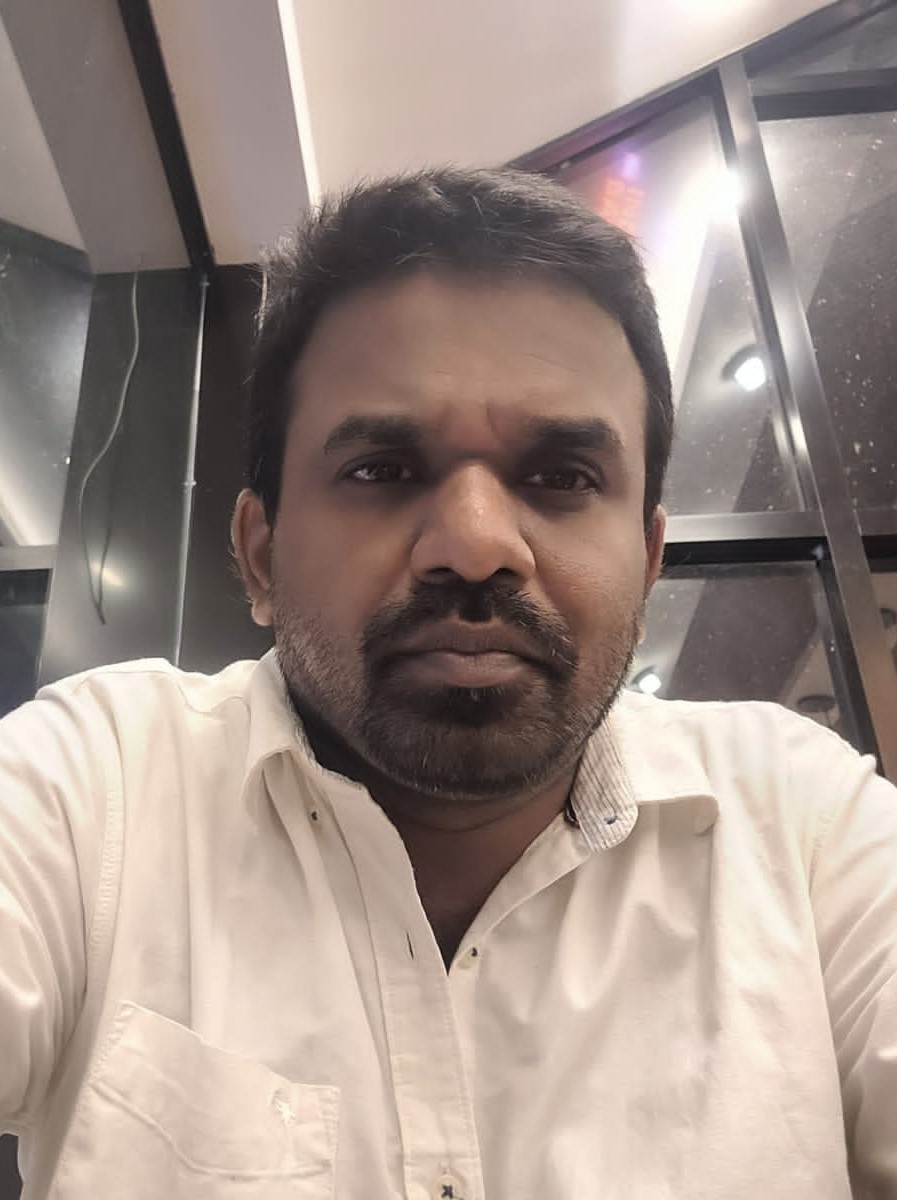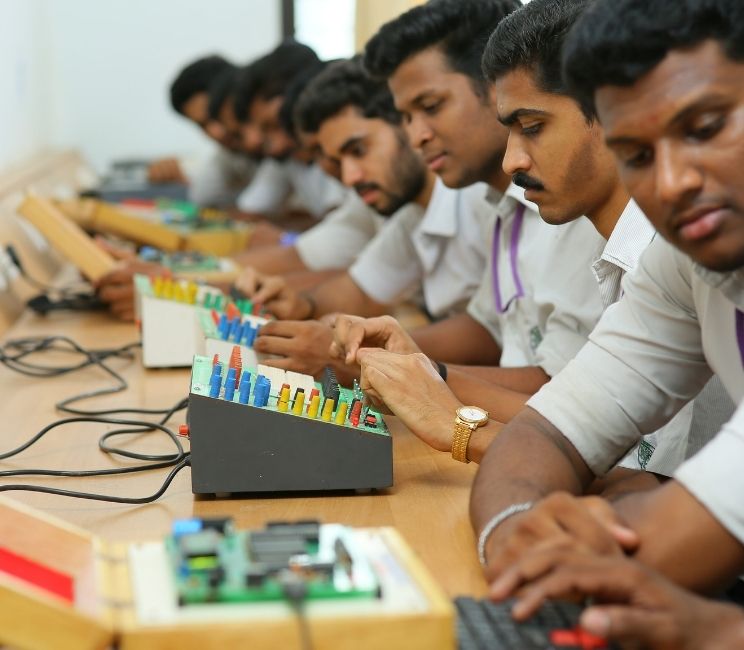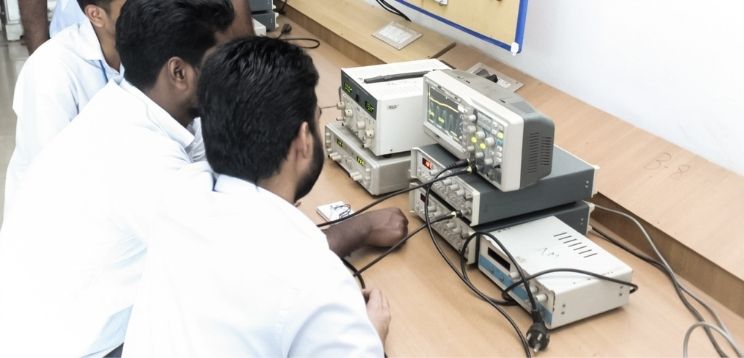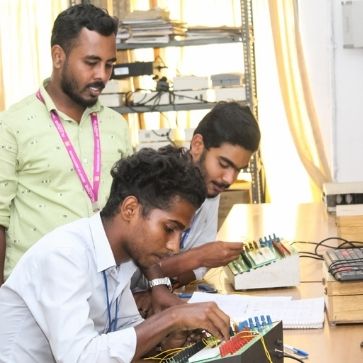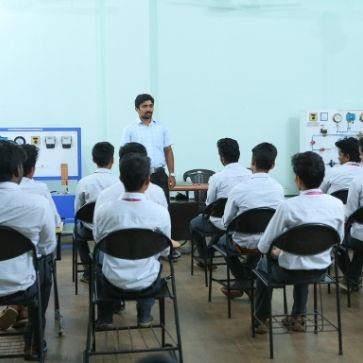In this 21st century, every day we are dealing with electronic circuits and devices in some of the other forms because gadgets, home appliances, computers, transport systems, cell phones, cameras, TV, etc. all have electronic components and devices. Today’s world of electronics has made deep inroads in several areas, such as healthcare, medical diagnosis, automobiles, industries, electronics projects etc. and convinced everyone that without electronics, it is really impossible to work. The rapid development that is taking place the world over in new technology areas like IoT, Artificial Intelligence, and Robotics have placed greater demand for electronics and communication engineers in days to come.
The Electronics & Communication Engineering Department was established in the year of 2010. The department produces great results and most of the students are got placed in leading companies. The Department is equipped with most modern lab facilities, computer centre, departmental library, classrooms with modern teaching aids etc. The laboratories include the Electronic Devices & Circuits Lab, Analog Electronic Circuits, Digital & Integrated Circuits Labs, Communication, Fiber Optic & Microwave Engineering Labs, Signal Processing & Controls Lab, and Microprocessor & Microcontroller Lab. We got Well Experienced faculties to support students in all their curricular and co-curricular activities.
VISION
- To make the department a centre of excellence in Electronics and communication engineering.
- To prepare the students as highly ethical and competent professionals.
MISSION
- To provide the students with an environment for understanding the basics of Electronics and Communication engineering and prepare the students for their professional careers
- To impart in-depth knowledge in principles and applications related to the design and development of various systems for society needs.
Harikrishnan MP
Head of Department
PROGRAM EDUCATIONAL OBJECTIVES (PEOs)
The educational objectives for Electronics and communication engineering program are designed to produce competent engineers who are ready to contribute effectively to the advancement of computer engineering causes and to accommodate the needs of the community. These objectives are as follows:

PEO1
Pursue their career successfully in the field of Electronics & Communication Engineering and advance in their profession.




PEO2




PEO3
Hold high ethical standards and work effectively in multidisciplinary teams with strong management and teamwork skills.
PROGRAM OUTCOME (POs)




PO1: Engineering knowledge




PO2: Problem analysis




PO3: Design/development of solutions


PO4: Conduct investigations of complex problems


PO5: Modern tool usage


PO6: The engineer and society


PO7: Environment and sustainability


PO8: Ethics


PO9: Individual and team work


PO10: Communication


PO11: Project management and finance


PO12 : Life-long Learning
PROGRAM SPECIFIC OUTCOME (PSO)




PSO1




PSO2




PSO3
Teaching Faculty
Harikrishnan MP
Designation Head of Department, Assistant Professor
date of joining 02-07-2012
Qualification ME Applied Electronics, pursuing PHD at APJKTU
Experience 12.6 Years teaching+ 2 industry
Papers Published Secret-Fragment-Visible Mosaic Image-Creation and Recovery via Color
Transformation
Ashamol Joseph
Qualification ME in Communication Systems
Experience 11 Years of Teaching Experience
Roles Handled Asst Professor
Joining Date 1/1/2014
Papers Published Facial Expression Recognition Using SVC And INGI Method
Sainaba K shahul
Qualification MTech Applied Electronics
Experience 1.5 years
Roles Handled Asst. Professor
Joining Date 31-7-2023
Papers Published A novel Approach for Person Reidentification using Background Subtraction and SIFT Features
Stenu Shaji
Roles Handled Asst Professor
Qualification MTech in VLSI and Embedded Systems
Experience 9 months
Papers Published Wireless crop monitoring for paddy field environment
Ashna Ashraf
Qualification MTech in VLSI and Embedded Systems
Experience 5 Months
Roles Handled Asst. Professor
Joining Date 05-08-2024
Non- Teaching Faculty
Ansal Nazar
Designation Lab Assistant
Qualification Diploma in Electronics and Communication
Experience 8 Years
Blessy Samuel
Designation Lab Assistant
Lab Facilities
Excellent infrastructure is provided for the academic betterment of our students. To substantiate theoretical expressions, Al-Azhar has established modern laboratories that comply with the KTU regulations. The equipment, specimen and technical facilities in the lab create a superior ambience for the students to conduct experiments.
Communication Engineering Lab
. AM, FM, PM, QAM, SSB, SM
. ASK, APSK, BPSK, QPSK, PAM, PCM, PWM
Analog Circuits Lab
This is a lab where the students learn the characteristics of different electronic devices and the basics of circuit design and implementation. The lab contains all necessary measuring instruments, display instruments, power supplies and function generators for the students to do experiments. Apart from Electronics and Communication students, third-semester students of Information Technology and Computer Science disciplines also make use of this lab. The experiments which is a part of the circuits lab are shown below
- Half –wave Rectifier, Full-wave rectifier, Bridge rectifier, Common Emitter amplifier.
- Oscillatorcircuits-Hartley, RC Phase shift, colpitts, crystal.
- Different circuits using operational amplifiers.
Electromagnetics Lab
- The laboratory is equipped with microwave benches at J band and H band, which includes expensive devices like klystron tubes, gun diodes, VSWR meter, directional couplers etc. some of the experiments are given below
- To study waveguide components.
- The characteristics of Gunn oscillator &Gun diode as the modulated source.
- Study of waveguide horn and its radiation pattern and determination of the Beamwidth.
- To study isolation and coupling coefficient of a magic Tee.
- To measure coupling coefficient, Insertion loss & Directivity of a Directional coupler.
VLSI & Embedded System Lab
The department of Electronics and Communication Engineering has a fully-fledged product development laboratory. The lab has all facilities which provide a clear cut idea of the processes behind the Electronic Product Design. The lab caters to the requirement of students for carrying out mini-project and major projects in the department itself.
The key features of the laboratory are
- A Printed Circuit Board Lab
- Licensed Simulation and Design Tools
- Facilities required to fabricate any B Tech level electronic products such as a) Workshop Tables, b) Bench wise c) Drilling Machines, d) Grinding machine e) Bending machine f) Sheet cutter, g) Transformer winding machine etc.
- The lab also keeps a stock of all the required items to make models of the products before actual fabrication.
Signal Processing Lab
The students perform experiments using Digital Signal Processor trainers and execute programs for signal generation and processing. The software facilities include the following
SCI lab
Mat Lab
Lab VIEW, KEIL, PROTEUS, MASM
Microprocessor & Microcontroller Lab
8085, 8086 Mp kit, 8051 mc kit, and various kits for interfacing experiments. This lab is used by ECE and CSE students.
Digital Electronics Lab


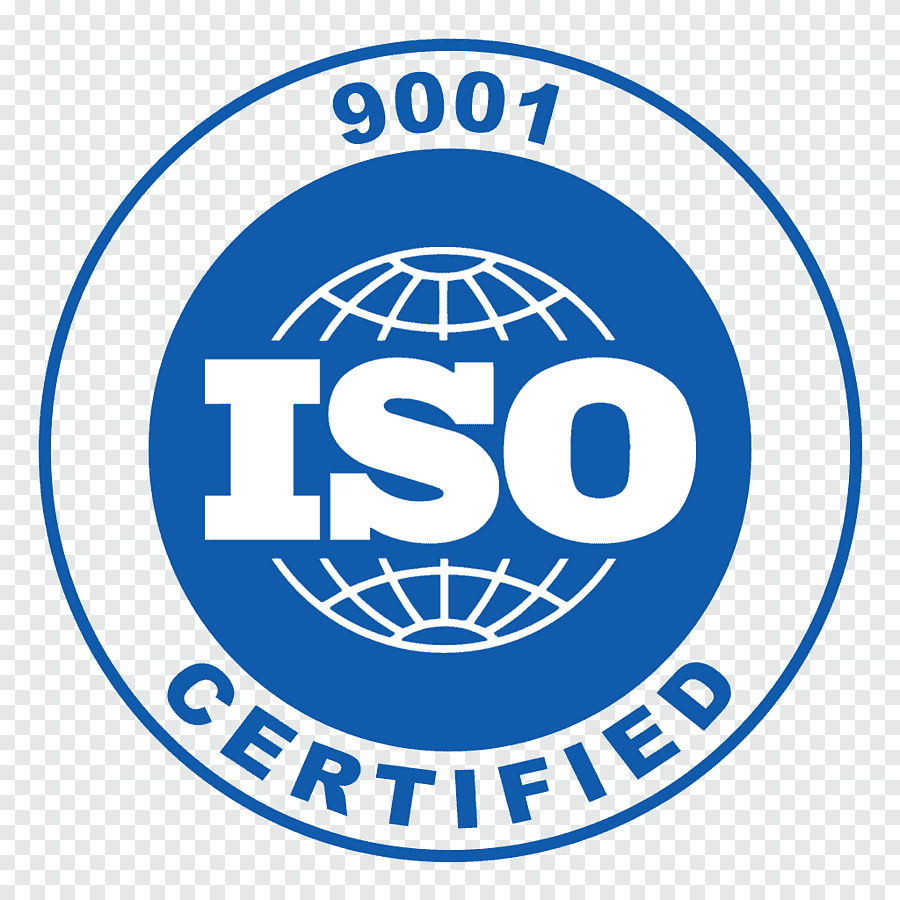

ISO 9001:2015 certified Institution
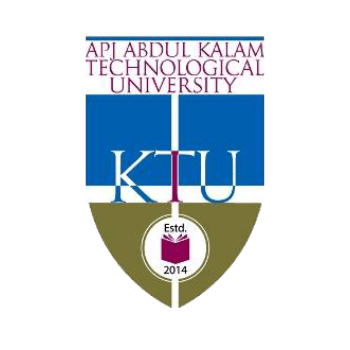

Affiliated to A.P.J Abdul Kalam Technological University
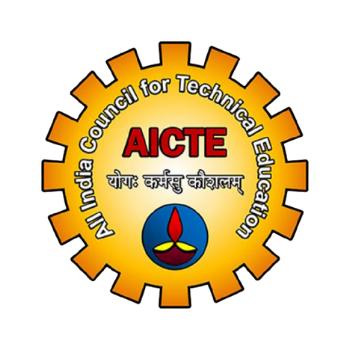

Approved by All India Council for Technical Education
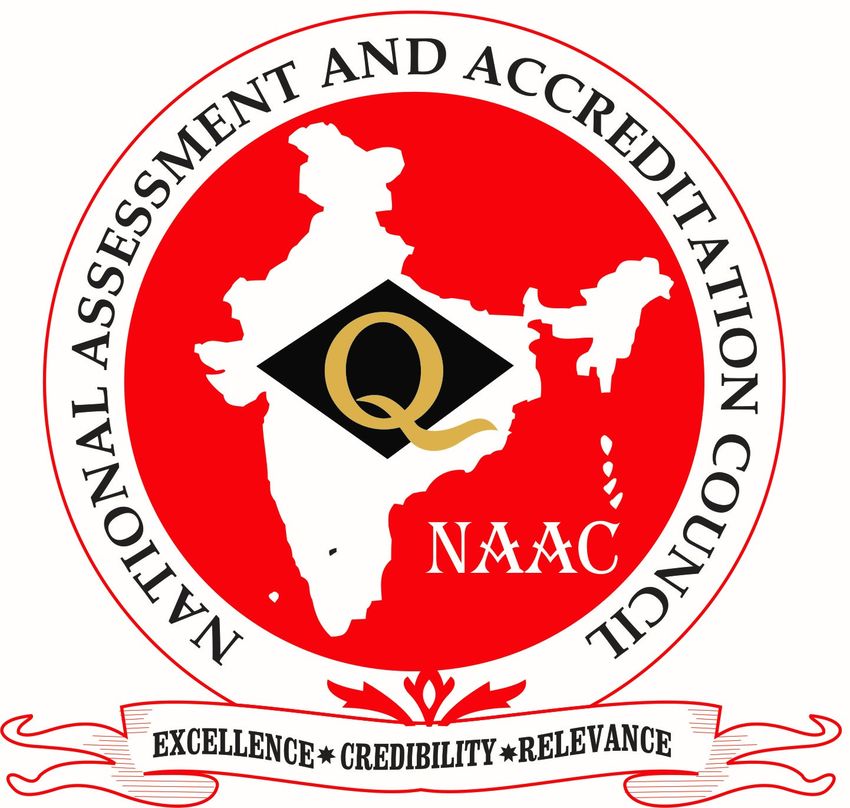

Accredited by NAAC (National Assessment and Accreditation Council)
Call
Office 0486 222 79444
Principal 9746 144 555
Admission 9446341518 , 9496 911 119
Women Helpline 9446831000

